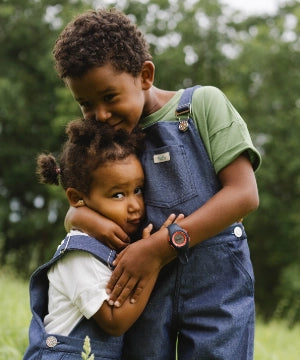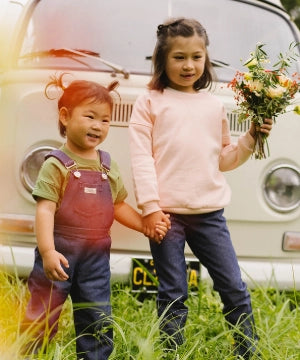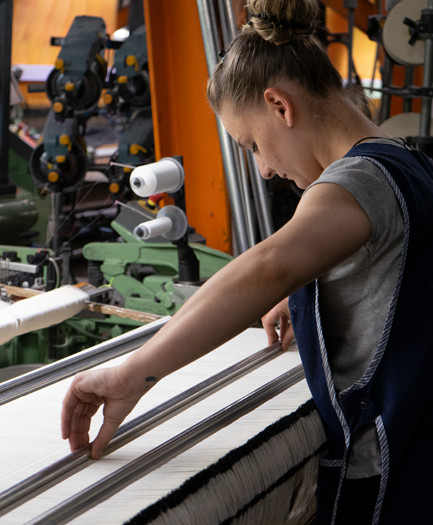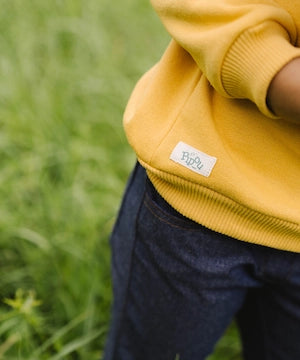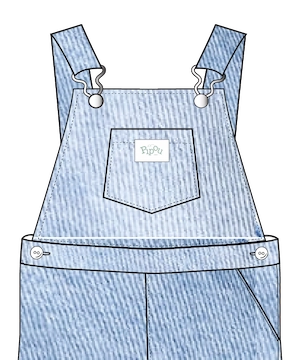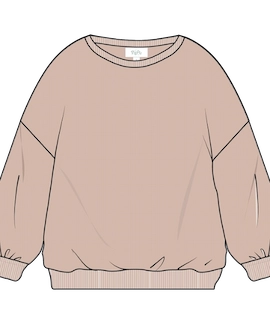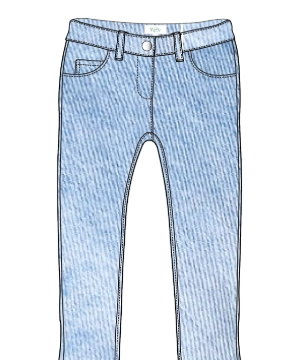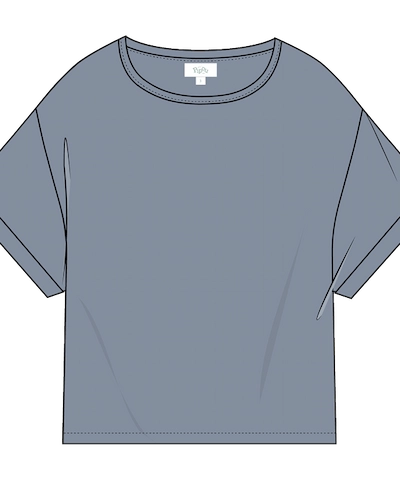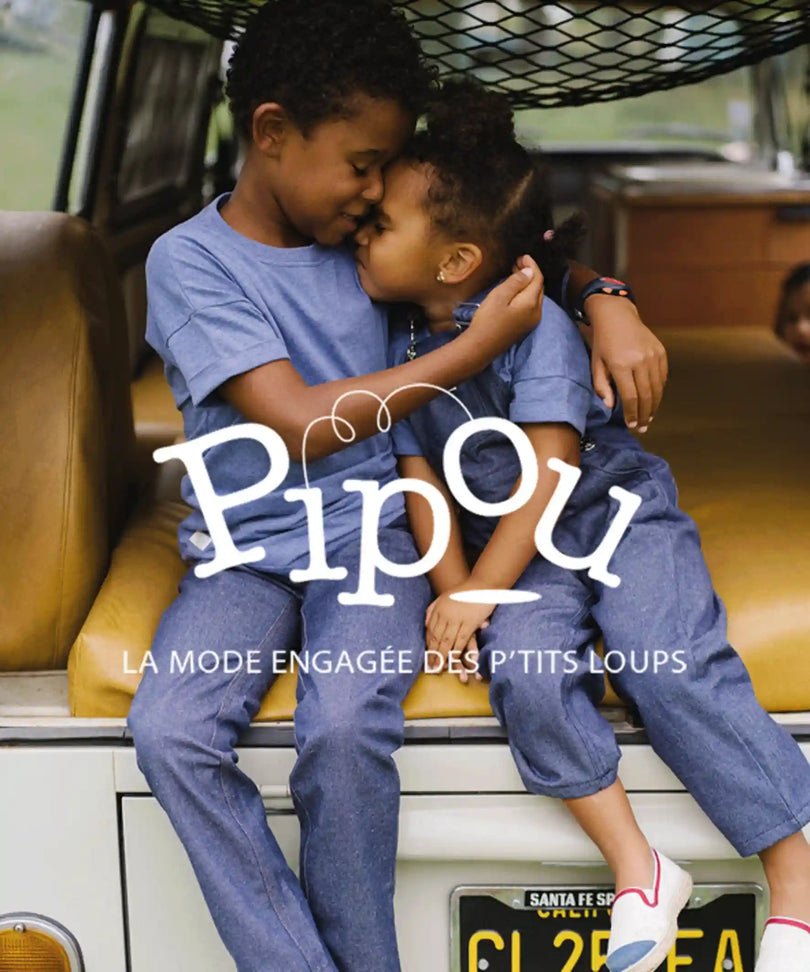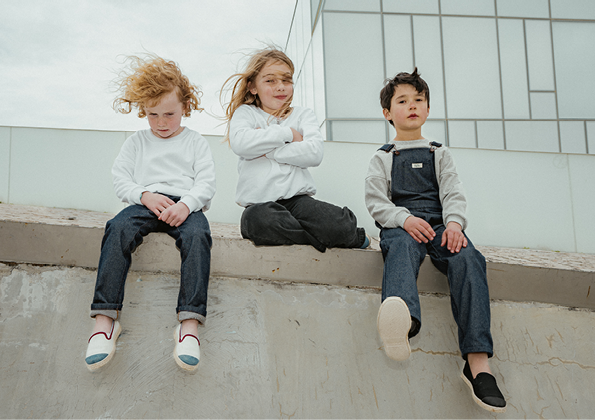When I created Pipou and in order to preserve the natural resources of our planet, I was very careful in the choice of my materials . I therefore only use recycled fibers to produce my clothes. This allows me to participate in limiting waste while preserving the planet's virgin resources.
But concretely, what does that mean?
In recent years, our consumption has only increased exponentially. Always looking for the latest trends, we have increased our purchases, especially clothing, without thinking about the impact this could have on our planet. Every year, more than 100 billion items of clothing are sold . Often of poor quality, the clothes are thrown away and only 1% of them are recycled, the rest ends up in landfill... The goal is not to feel guilty, I actively participated in this economy for years, no one is perfect 😉, the idea is just to become aware of it and try to change and make things happen!
Well, now that we are aware of all this, it is urgent to act and fortunately, things are moving and more and more eco-responsible brands are emerging, like Pipou 🧸. Together, we can change things, but we need to review our consumption patterns on several levels.
It would be good, to start, to return to reasonable consumption.
Fashion and fast fashion have accustomed us to thinking of clothing as an accessory that only lasts a while and above all an accessory that must be accumulated in order to exist. But do we really need to have so many clothes in our closets?
We should therefore consume less, but also better!
We can consume better by purchasing better quality clothing, for this reason, clothing made in France benefits from real know-how which guarantees this durability (we will discuss this subject in another article 😉). You can also buy ethical clothing, like those offered by Pipou, which use recycled materials.
What are the advantages of recycled fibers? ♻️
Using recycled fibers rather than producing new ones from virgin materials, whether for cotton or polyester, makes it possible to reduce the pollution caused by production by 90%! That's something...
Pollution caused by production means:
- use of pesticides in the cultivation of raw materials,
- excessive use of water,
- human exploitation (slavery and child labor)
- creation of new materials which are added to the existing overflow.
The use of recycled fibers makes it possible to revalue existing waste and drastically reduce the quantities of water used and thus preserve the natural resources of our planet.
Recycling of waste
Today, we sadly see that our soils, our seas, our oceans are covered with waste which sometimes takes millennia to decompose. This waste destroys the ecosystem and has a devastating effect on biodiversity but also on humans. I therefore preferred the recycling solution for Pipou which, in addition to preserving virgin resources, eliminates part of the waste that we produce.
All Pipou clothing, whether the Aliocha t-shirt, the Alma sweatshirt, the Zadig jeans or the Castille overalls are therefore made from a mix of recycled cotton and recycled polyester. The cotton comes from production scraps intended to be thrown away and the polyester from the recycling of plastic bottles and other various plastics collected in the oceans.
Recycled polyester therefore allows us to give a second life to a material which is not biodegradable and which otherwise continues to pollute our oceans. According to the NGO Ocean Conservancy, 8 million tonnes of plastic are dumped into the ocean each year and this is in addition to the approximately 150 million tonnes currently circulating in marine environments. If we maintain this pace, by 2050 there will be more plastics in the ocean than fish!🐠
With Pipou, we don't produce new waste and what's more, we recover what already pollutes!
Water saving
Cotton is the most widely used natural textile fiber in the world for making clothing. It is renowned for its softness and comfort.
It comes from the cotton flower which can only be cultivated in certain remote countries (India, China, United States, Brazil and Pakistan) and requires a lot of water and pesticides.
Using recycled cotton therefore significantly reduces our impact on the planet. Studies estimate that it takes on average 11,000 liters of water to produce 1 kilo of cotton!
For example, to make an Alma sweatshirt at Pipou, I asked my spinning workshops how much water was saved compared to a traditional cotton sweatshirt: almost 5,000 liters of water are saved, incredible!
In fact, recycled cotton requires very little water (up to 98% less!), no fertilizers, no pesticides, no intensive agriculture on monoculture plots having previously required deforestation. , no transport across the planet…
However, I am aware that not everything is perfect when using recycled fibers and I think every day about finding better solutions.
For example, I know that recycled polyester releases microparticles of plastic into the water when machine washed (for your information, all fabrics release microparticles when washed, some are just more polluting than others. A cotton full of pesticides and dyed with chemicals isn't much better).
To limit this, I advise you to use a washing bag like the Guppyfriends which retains 90% of these microparticles and helps preserve our seabed from textile pollution.
At Pipou, I therefore chose an eco-responsible and, above all, transparent approach. You know everything about the materials I use, the workshops I work with and also my questions and my research.
So if you have suggestions, encouragement, anything to give me, don't hesitate to comment, because we want to build together the world of tomorrow that we will leave to our little wolves!

